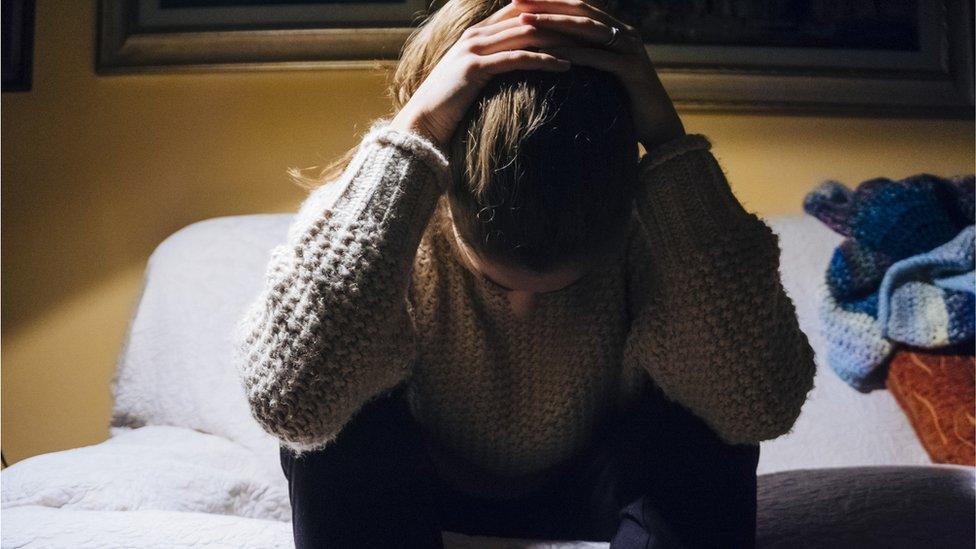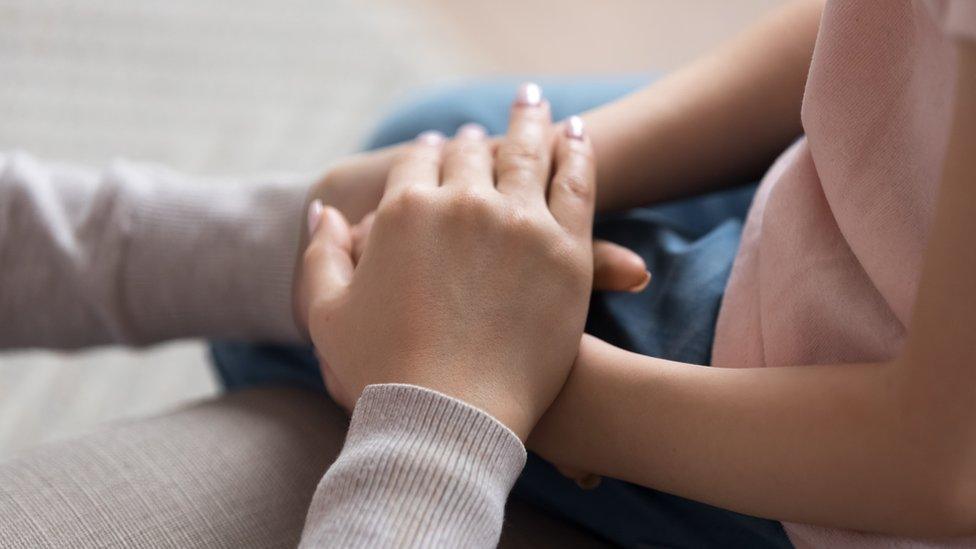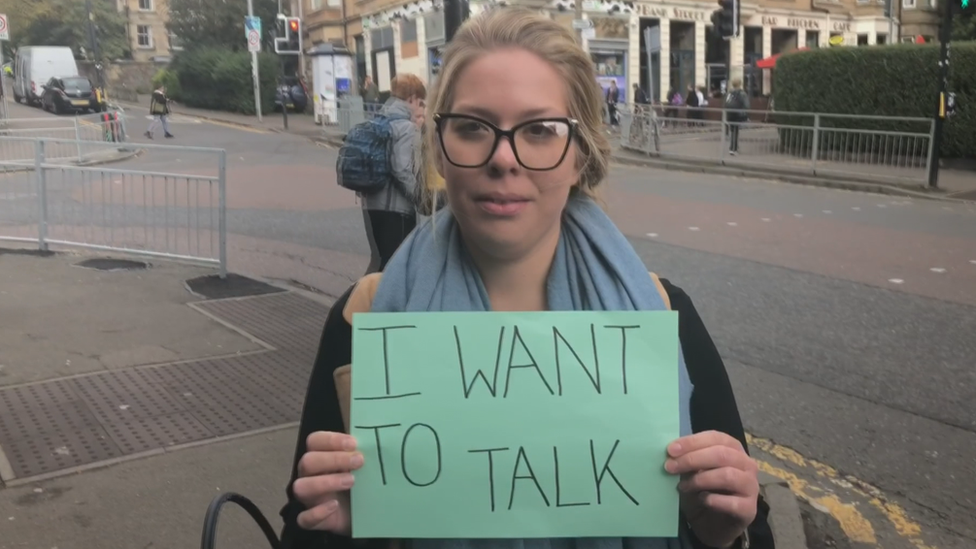Compulsory mental health detentions in Scotland at record high
- Published

Mental health professionals are seeing more young people needing compulsory treatment
The number of times people needed compulsory mental health treatment in Scotland reached a record high last year.
Data from the Mental Welfare Commission revealed there were 6,038 such detentions under the Mental Health Act.
Rates of emergency orders used in a crisis have risen most sharply among teenagers over the last decade.
The figures also revealed big differences in the rates of detention between different health board areas.
The commission said the rise in the number of young people requiring emergency treatment was a particular concern and needed further investigation.
The figures revealed:
Among women, the 18-24 age group was most affected, with 185 cases
Young men aged 16-17 saw the greatest increase in emergency detention last year
Over the past 10 years, 16 and 17 year olds of both sexes have seen the biggest increase in such detentions

The Scottish government says it is investing in mental health services
Mental Welfare Commission executive director Dr Moira Connolly said: "The rise in numbers of times detention is used in relation to young people is concerning.
"We already know of the increased number of children and young people seeking help for mental health issues, but we need to understand more about whether those pressures are now being reflected in our data regarding compulsory hospital treatment."
The total number of detentions was the highest since the Mental Health Act came into force in Scotland in 2003 and revealed big regional variations.
Greater Glasgow and Clyde Health Board continues to treat more people per head of population than any other health board
Dumfries and Galloway remains above average, but in recent years has reduced its use of emergency detention
In Tayside the rate of detentions is above average and has risen sharply in the past two years
Highland, Ayrshire and Arran, Lanarkshire, Borders and Grampian have the lowest rates (data from the island health boards was not included because the numbers were so low)
Emergency detentions are supposed to take place with the consent of a specialist social worker, called a mental health officer, but again this varies between areas.
In Dumfries and Galloway there was 83% compliance but in Greater Glasgow and Clyde this fell to 33%, the commission said.
"The consent of a mental health officer in these cases is an important safeguard for the individual," said Dr Connolly.
"The low rates in some areas are a real concern for us and we hope that our data will be taken into account by the government and by health boards, local authorities and integrated joint boards, with whom we will continue to raise it."
Independent review
The Scottish government said an independent review was examining the increase in compulsory detention and regional variation across Scotland and an interim report would be published next May.
A spokesperson said: "Prevention and early intervention are key focus areas and we will put in place 350 additional school councillors and 250 school nurses by 2022 to support young people.
"We have also expanded the Distress Brief Intervention programme pilots this year to include 18-year-olds.
"Any increase in compulsory treatment may represent the effects of more people coming forward for treatment and an increased awareness in mental ill health more generally.
"It's also important to note that the majority of people subject to compulsory treatment are on short-term orders rather than long-term."
Details of organisations offering information and support with mental health issues are available at bbc.co.uk/actionline, or you can call for free, at any time to hear recorded information on 0800 888 809.
- Published29 October 2018
